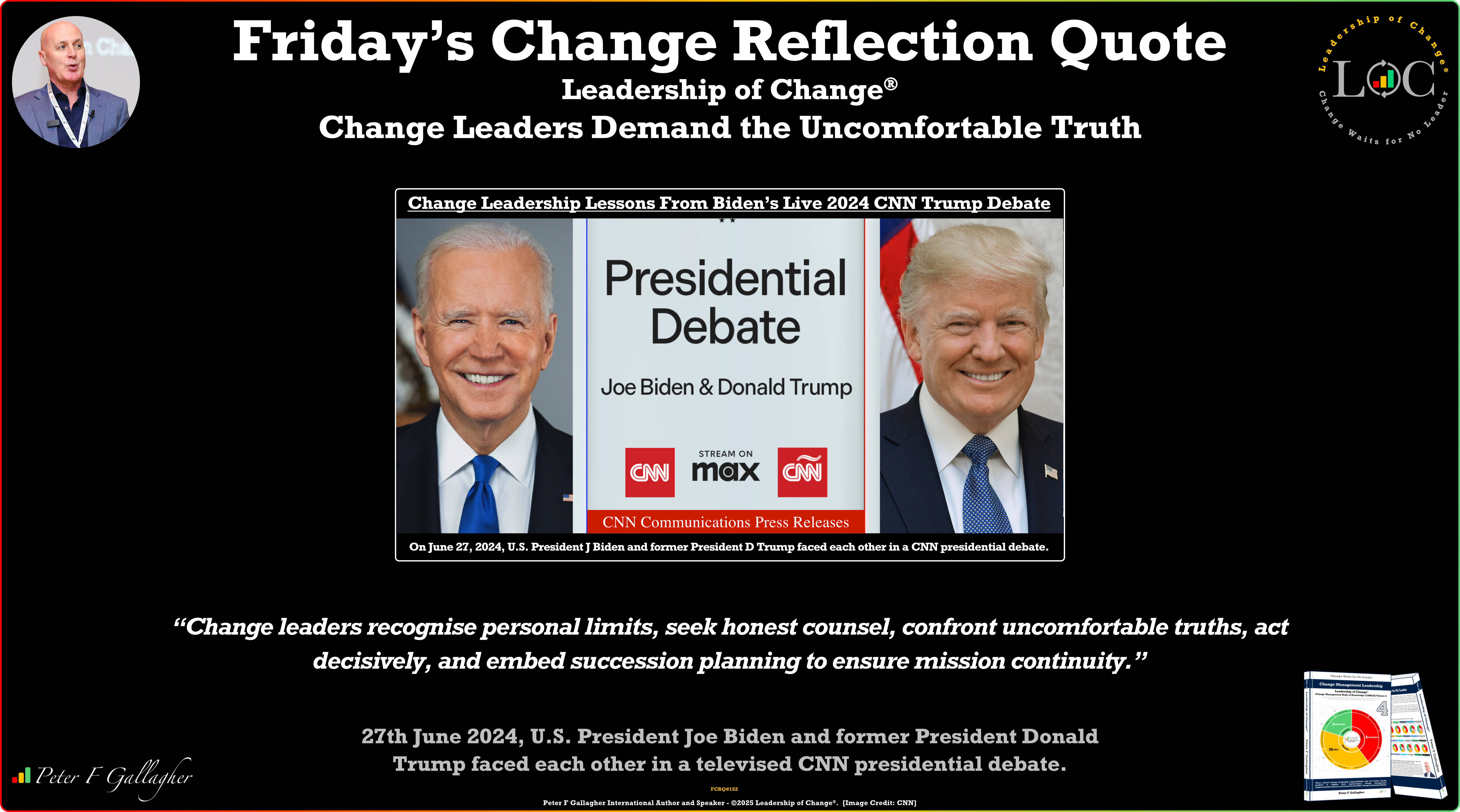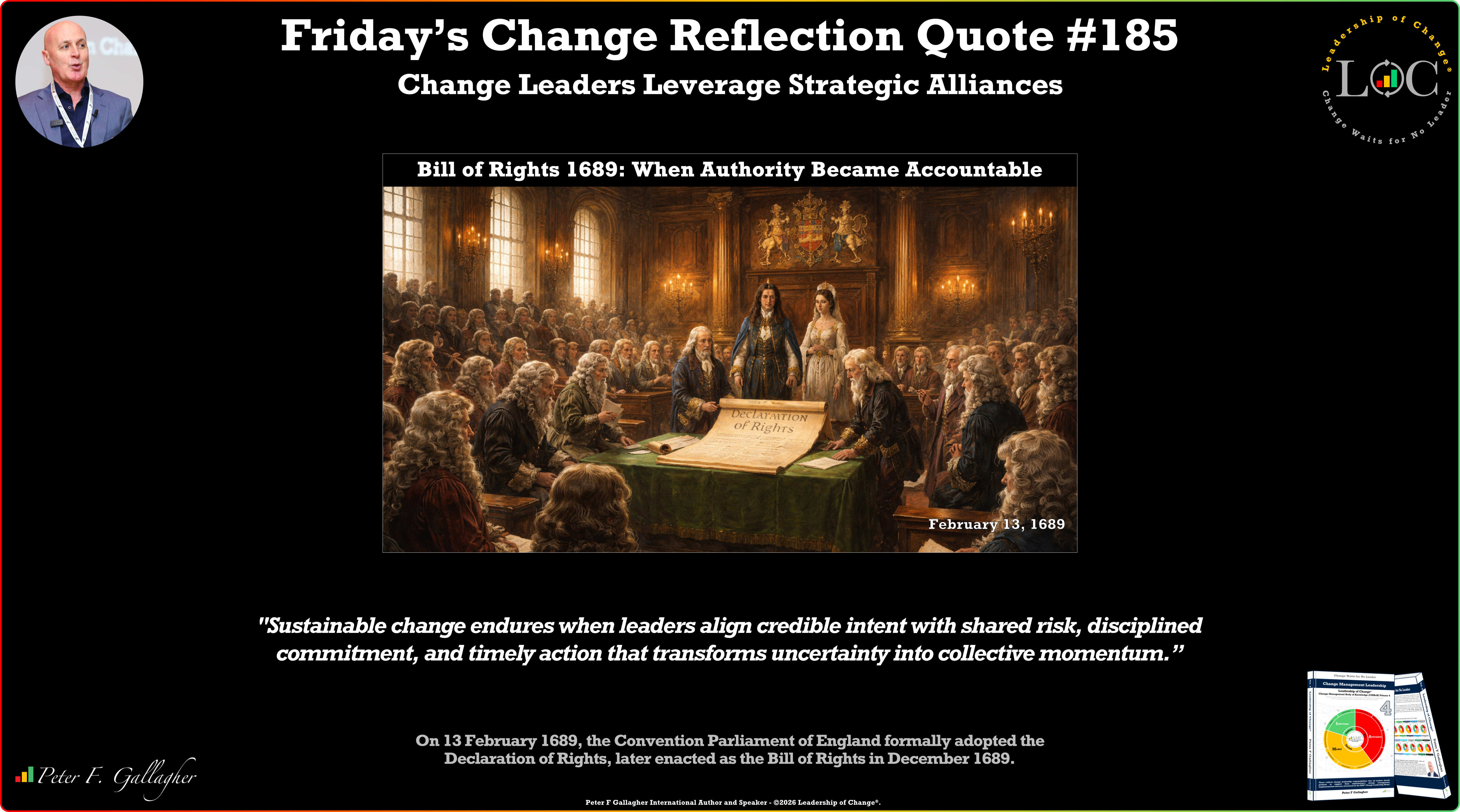Jun27

Leadership Learning!
On this Day, 27th June 2024, U.S. President Joe Biden and former President Donald Trump faced each other in a televised CNN presidential debate. This marked the first presidential debate of the 2024 United States general election campaign and was held unusually early—nearly four months before election day. Hosted at CNN’s studios in Atlanta, Georgia, the event was historic for multiple reasons. For the first time in U.S. history, a sitting president and a former president, debated head-to-head. It was also the earliest general election debate ever held, reflecting a highly polarised political climate and a deeply divided electorate. CNN introduced strict format rules, including muted microphones, the absence of a live audience, and firm time limits, to maintain control during a volatile campaign. As the debate unfolded, millions of Americans tuned in via television and online platforms, with international audiences also watching closely. According to CNN, over 51 million viewers watched the debate live across broadcast, cable, and streaming services, making it one of the most viewed political events of the year. President Biden, aged 81 at the time, was seeking re-election after serving one term in office. His record included economic recovery efforts post-COVID-19, renewed emphasis on NATO and international diplomacy, and efforts to stabilise democratic institutions following the upheaval of the 2020 election and its aftermath. However, questions about his age, cognitive sharpness, and overall stamina had become an undercurrent throughout the campaign. Those concerns came sharply into focus during this debate. Media reports noted his halting delivery, visible pauses, and difficulty rebutting statements made by Trump. Former President Donald Trump, aged 78, remained a polarising figure. Despite multiple legal indictments and ongoing criminal trials, he had maintained dominance within the Republican Party and secured the 2024 nomination. His approach to the debate was aggressive and assertive, often delivering rehearsed messages aimed at energising his core base. Trump capitalised on the contrast between himself and Biden, leveraging moments of uncertainty in Biden’s delivery to portray himself as a stronger, more capable leader. The aftermath of the debate generated immediate headlines. Prominent Democratic supporters, media commentators, and political analysts began to question whether President Biden should continue in the race. Within days, polling data began to reflect voter unease. According to Ipsos and YouGov surveys conducted shortly after the debate, confidence in Biden’s candidacy dropped significantly, especially among independent voters and younger demographics. The Democratic Party entered a phase of intense introspection, with growing discussions about a potential replacement candidate. Despite statements from the White House affirming President Biden’s intention to continue, internal pressure mounted steadily. President Biden’s voluntary withdrawal less than a month later marked a rare moment of introspection in high-stakes leadership. On 21st July 2024—less than one month after the debate, he formally announced he would not seek re-election. This decision marked a significant moment in modern U.S. political history. He became the first sitting president since Lyndon B. Johnson in 1968 to voluntarily withdraw from a re-election campaign. Biden’s announcement reshaped the entire trajectory of the 2024 election, triggering an urgent and unprecedented Democratic nomination process.
Change Leadership Lessons: The events of 27th June 2024 offer profound insights into the nature of leadership during moments of truth. Leadership is tested not only through decisions, but also by how capability is perceived under intense public scrutiny. The debate reinforced existing concerns, showing how swiftly public perception can shift—even for leaders with decades of service. Leaders of change understand that past success does not guarantee current confidence during pivotal, high-visibility, and high-stakes leadership moments. They understand the risks of becoming the last to recognise their own decline if surrounded by those unwilling to speak the truth. Change leaders demonstrate integrity by preparing thoroughly for critical moments that test both credibility and capability. They show responsibility by ensuring succession planning is transparent, future-focused, and aligned with stakeholder expectations. Leaders of change uphold integrity by stepping aside when necessary, putting the mission ahead of personal position or legacy. Change Leaders Demand the Uncomfortable Truth.
“Change leaders recognise personal limits, seek honest counsel, confront uncomfortable truths, act decisively, and embed succession planning to ensure mission continuity.”
Application - Change Leadership Responsibility 3 – Intervene to Ensure Sustainable Change: The Biden–Trump debate exemplifies how leadership responsibility includes knowing when to intervene to ensure sustainable change and continuity. Biden's situation demonstrates that sustainable change often demands difficult decisions about leadership transitions, particularly when external pressures and internal capabilities become misaligned. Effective change leaders ensure honest self-assessment and create conditions where trusted voices can speak hard truths without fear. The debate's aftermath revealed the dangers of insular decision-making and the importance of diverse perspectives in leadership evaluation. Change leaders must distinguish between personal ambition and organisational mission. Biden's eventual withdrawal, though painful, illustrated how sustainable change sometimes requires leaders to step aside for the greater good. The same principle applies in business—leaders must know when their presence supports progress, and when it obstructs it. The intervention responsibility extends beyond self-assessment to include succession planning and ensuring smooth transitions that preserve institutional knowledge whilst enabling fresh leadership perspectives to emerge
Final Thoughts: Many leadership failures arise not from lack of vision, but from a reluctance to respond to what the mirror reflects. The 27 June 2024 debate reminds us: leadership is a privilege with performance conditions. When capacity and challenge no longer align, the true leader responds—with clarity, transparency, and loyalty to the mission over self.
Credit and thank you: CNN.
Further Reading: Change Management Leadership - Leadership of Change® Volume 4.
Peter F. Gallagher consults, speaks, and writes on Leadership of Change®. He works exclusively with boards, CEOs, and senior leadership teams to prepare and align them to effectively and proactively lead their organisations through change and transformation.
For insights on navigating organisational change, feel free to reach out at Peter.gallagher@a2B.consulting.
Credit and Thank you: Greenpeace
#LeadershipofChange #Leadership #ChangeLeadership #GlobalGurus #ChangeManagement #Shell #EnvironmentalIntegrity #BrentSpar
Further Reading: Change Management Leadership - Leadership of Change® Volume 4
Have a fantastic weekend with the ones you love and care for, enjoy some fresh air, exercise, eat, drink, and be happy.
Peter F. Gallagher consults, speaks, and writes on Leadership of Change®. He works exclusively with boards, CEOs, and senior leadership teams to prepare and align them to effectively and proactively lead their organisations through change and transformation.
For insights on navigating organisational change, feel free to reach out at Peter.gallagher@a2B.consulting.
For further reading please visit our websites: https://www.a2b.consulting https://www.peterfgallagher.com Amazon.com: Peter F Gallagher: Books, Biography, Blog, Audiobooks, Kindle
Leadership of Change® Body of Knowledge Volumes: Change Management Body of Knowledge (CMBoK) Books: Volumes 1, 2, 3, 4, 5, 6, 7, 8, 9, 10, A, B, C, D & E available on both Amazon and Google Play:
~ Leadership of Change® Volume 1 - Change Management Fables
~ Leadership of Change® Volume 2 - Change Management Pocket Guide
~ Leadership of Change® Volume 3 - Change Management Handbook
~ Leadership of Change® Volume 4 - Change Management Leadership
~ Leadership of Change® Volume 5 - Change Management Adoption
~ Leadership of Change® Volume 6 - Change Management Behaviour
~ Leadership of Change® Volume 7 - Change Management Sponsorship
~ Leadership of Change® Volume 8 - Change Management Charade
~ Leadership of Change® Volume 9 - Change Management Insanity
~ Leadership of Change® Volume 10 - Change Management Dilenttante
~ Leadership of Change® Volume A - Change Management Gamification - Leadership
~ Leadership of Change® Volume B - Change Management Gamification - Adoption
Keywords: Leadership, Change Management, Business Strategy
 Testing Suez: Economics Are Driving Carriers Back Into the Red Sea
Testing Suez: Economics Are Driving Carriers Back Into the Red Sea Mastering Social Media in 2026: Optimizing Networking and Advocacy for the Digital Age
Mastering Social Media in 2026: Optimizing Networking and Advocacy for the Digital Age Friday’s Change Reflection Quote - Leadership of Change - Systemic Change Follows Failed Governance
Friday’s Change Reflection Quote - Leadership of Change - Systemic Change Follows Failed Governance Who Are You Under Pressure - And Is That the Real You?
Who Are You Under Pressure - And Is That the Real You? LinkedIn Voice for Sales
LinkedIn Voice for Sales